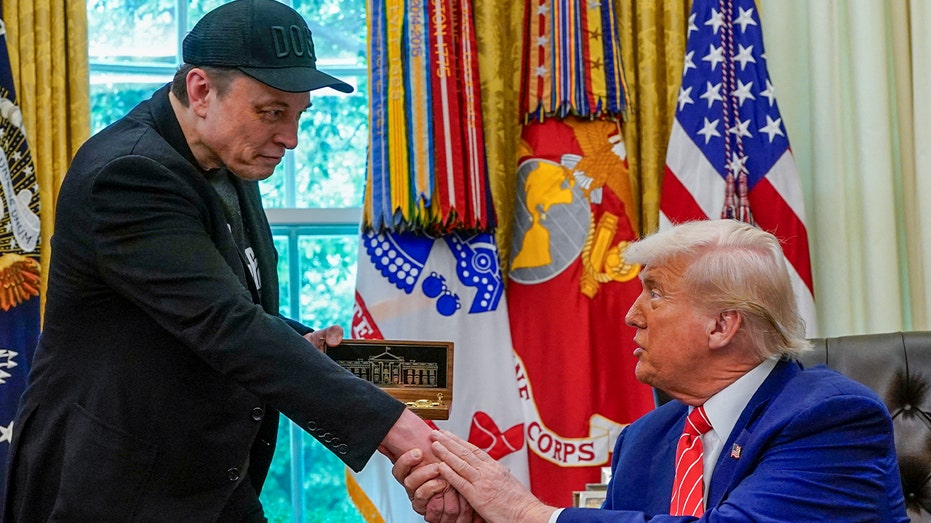Trump-Musk Feud: Who Deserves the Most Credit for Trump's Resounding 2024 White House Victory?
Trump and Musk clash over credit for 2024 victory, with Musk touting his battleground campaigning and fundraising efforts.

The escalating public feud between President Donald Trump and business mogul Elon Musk has ignited a nationwide discussion over the true impact of Musk’s involvement in the 2024 presidential election. The heated exchange, which centers on claims over who was pivotal in securing Trump’s recent White House victory, has spilled into social media and campaign circles alike.
Speaking to reporters this week, President Trump asserted, “I think I would have won” even without Musk’s well-documented support throughout his re-election bid. But Musk, never one to shy away from controversy, immediately shot back online, stating: “Without me, Trump would have lost the election.” The back-and-forth has exposed friction between two figures who, until recently, appeared closely aligned both publicly and financially.
The partnership between Trump and Musk was particularly visible during the second half of the campaign. Musk, serving as the CEO of Tesla and SpaceX, openly endorsed Trump following a high-profile assassination attempt in Butler, Pennsylvania, and became the top individual donor of the 2024 election cycle. Reports indicate that he funneled close to $300 million through America PAC—a Trump-aligned super PAC—directing substantial resources toward crucial battleground states.
Pennsylvania became a focal point for Musk’s efforts. He joined Trump at a pivotal October rally in Butler, held a series of town halls, and established a dedicated campaign headquarters in Pittsburgh. These actions were aimed at boosting Republican turnout in a state that proved vital to Trump’s electoral map.
Within Trump’s inner circle, opinions are divided over the extent of Musk’s contribution. White House Chief of Staff Susie Wiles reportedly downplayed Musk's influence, suggesting Trump could have carried Pennsylvania without additional support. Yet Musk responded swiftly on social media, arguing that his backing was instrumental not only for Trump’s personal victory but also for Republican gains in Congress, stating, “Such ingratitude.”
Political strategists on both sides of the debate acknowledge Musk’s impact. Some, including veteran campaign consultant John Brabender, maintain that while many donors and organizers played significant roles, Trump himself was the driving force behind his victory. Others, such as seasoned GOP operative Dave Carney, insisted that external help from figures like Musk “just made it easier” for Trump to secure wins across all seven battleground states.
Grassroots leaders echo similar sentiments. Tom Eddy, Republican chairman in Erie County, Pennsylvania—a crucial swing region—said Musk’s combination of financial muscle and celebrity status “helped Trump significantly,” though he emphasized that Trump is eager to remind voters he ultimately earned his win.
Meanwhile, some strategists, including Michigan’s Dennis Lennox, bluntly acknowledged that Musk’s claim of being decisive in the election may sound arrogant, but it is probably grounded in reality. The unprecedented field operations, targeted communications, and voter mobilization attributed to Musk’s America PAC are widely considered to have been a game-changer in activating lower-propensity voters sympathetic to Trump’s platform.
While the spat between Trump and Musk continues to unfold publicly, the broader Republican Party now faces the challenge of reconciling internal divisions while still harnessing the immense resources and star power that alliances like these bring to future campaigns. One thing is clear: the debate over who deserves credit for Trump’s latest victory remains as fierce as ever, underscoring the unpredictable dynamics of modern American politics.




